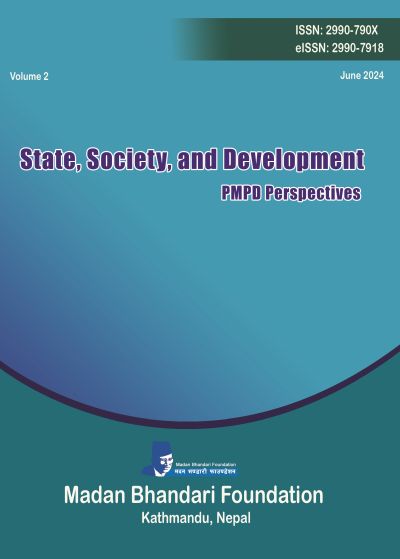Foreign Policy in Bhandari’s People’s Multiparty Democracy
DOI:
https://doi.org/10.3126/ssd.v2i01.67233Keywords:
PMPD perspectives, Global political context, Internal socio-political dynamics, Foreign policyAbstract
Foreign policy refers to the set of strategies and actions implemented by a state to manage its relationships with other countries, derived from various sources. This paper explores the outlook on foreign policy as mentioned in the work of Madan Bhandari and his theory of People’s Multiparty Democracy (PMPD). Although PMPD represents a pioneering effort by Bhandari to theorize Nepal’s socio-political dynamics, encompassing several segments of society through its fourteen characteristics, the foreign policy aspect of PMPD remains under-researched in academic literature. In this context, using both primary and secondary data sources, this article first examines the emergence of Bhandari, then Secretary General of the Communist Party of Nepal (Unified Marxist-Leninist), in the Nepali political landscape. Additionally, by exploring the theoretical framework of PMPD as proposed by Bhandari, the paper aims to analyze both the international and domestic political contexts to understand the evolution of PMPD as a political theory. Specifically, it examines the outlook on foreign policy within the PMPD framework, identifying the objectives and principles considered. The scope of this research is that it contributes to the academic literature by providing a detailed analysis of the foreign policy perspective under PMPD and opens avenues for investigating the application of PMPD by the CPN (UML) during their tenure in the government.
Downloads
Downloads
Published
How to Cite
Issue
Section
License
Once published, an article in this Journal is not permitted to publish in other journals or similar publications without the permission of the Foundation. Contents and perspectives presented in the articles in the journal are solely of the authors.




